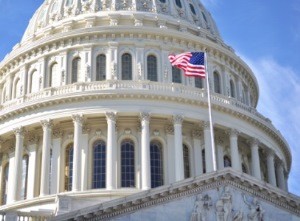by Jennifer Kupper
In-house Counsel for iaCONSULTING, a UBA Partner Firm
 The Patient Protection and Affordable Care Act (PPACA) specifically encourages and promotes the expansion of wellness programs in both the individual and group markets. In the individual market, the secretaries of the departments of Health and Human Services (HHS), Treasury, and Labor are directed to establish a pilot program to test the impact of providing at-risk populations who utilize community health centers an individualized wellness plan that is designed to reduce risk factors for preventable conditions as identified by a comprehensive risk-factor assessment. Results will be compared against a controlled group.
The Patient Protection and Affordable Care Act (PPACA) specifically encourages and promotes the expansion of wellness programs in both the individual and group markets. In the individual market, the secretaries of the departments of Health and Human Services (HHS), Treasury, and Labor are directed to establish a pilot program to test the impact of providing at-risk populations who utilize community health centers an individualized wellness plan that is designed to reduce risk factors for preventable conditions as identified by a comprehensive risk-factor assessment. Results will be compared against a controlled group.
In the group market, the secretaries are directed to establish a multi-state, employer-sponsored, health-contingent wellness program demonstration project. The objectives are to determine the effectiveness of employer-sponsored, health-contingent wellness programs, the impact of wellness programs on the affordability and access to care for participants versus non-participants, the impact of cost-sharing and incentives on participant behavior, and the effectiveness of other types of rewards.
There is, however, a huge disconnect within the administration. This is exemplified by the Equal Employment Opportunity Commission’s (EEOC) revived attacks and recent litigation against employers who sponsor presumably PPACA-compliant wellness programs. Employers are waking up to the sad facts that the risk in sponsoring health-contingent wellness programs is mounting, the EEOC remains silent in providing guidance*, and the corporate wellness industry is in quandary.
In response to the recent litigation, two parallel bills were introduced the first week of March (S. 620/H.R. 1189). With less than a 2% chance of being enacted, Mr. Lamar Alexander (R-Tenn.) of the Senate and Mr. Jon Kline (R-Minn.) of the House introduced the Preserving Employee Wellness Programs Act (the legislation). The purpose of the legislation is “[t]o clarify rules relating to nondiscriminatory employer wellness programs as such programs relate to premium discounts, rebates, or modifications to otherwise applicable cost sharing under group health plans.”
The legislation would allow employers to implement workplace wellness programs or employer-sponsored, health-contingent programs without the fear of running afoul of the Americans with Disabilities Act (ADA) and its amendments (ADAAA) or Genetic Information Nondiscrimination Act (GINA), so long as the wellness programs operated pursuant to the Health Insurance Portability and Accountability Act (HIPAA) nondiscrimination and wellness regulations.
The legislation also provides that a sponsoring employer can establish a deadline of up to 180 days for employees to request and complete a reasonable alternative standard (or waiver of the otherwise applicable standard). Further, the legislation affirms that the employees’ spouse and family members can participate and would have the same protections afforded as an employee-participant. In other words, medical history and biometric information of participating family members would not be an unlawful acquisition under GINA.
